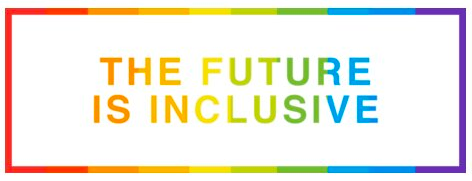
Call for a consultation
AB5 and AB2257: What it Means for Employers in California
By Jennifer Brust
California Assembly Bill 5 (AB5) was passed into law to protect freelancers in the gig economy. It came after a Supreme Court ruling that established the three-pronged test for determining whether workers are independent contractors or employees.
AB5 was soon followed by AB2257 and Proposition 22. The requirements introduced in these laws create challenges for businesses that currently employ independent contractors.
Here is a closer look at how AB5 and AB2257 may impact your business.
What Is Assembly Bill 5?
AB5 was passed by the California legislature and signed into law by Governor Gavin Newsom on September 10, 2019. It went into effect on January 1, 2020, and immediately faced resistance from employers in California.
The bill enforces an earlier court ruling that created requirements for employee classification. In the case of Dynamex Operations W. v. Superior Court, the California Supreme Court decided that workers are presumptively employees unless the employer can prove that the workers meet one of three criteria.
If a worker does not meet the criteria of the three-pronged test, the employer must classify the worker as an employee. The three factors include:
- Work that is free from the direction and control of the employer
- Work that is performed outside of the employer’s standard business operations
- Work that is customarily completed by workers from independently established trades
The first prong of the test typically refers to work that is completed outside of the workplace. The employer does not have direct control over the employee’s daily performance.
The first part of the three-pronged test applies to most independent contractors, including drivers for raid-hailing apps, such as Lyft and Uber. The third factor applies to jobs that are typically completed by independent contractors, including consultants, home builders, and craftsmen. However, delivery drivers for raid-hailing apps do not meet the second criteria.
The work performed by drivers is within the employer’s standard business operations. As drivers are essential parts of the usual course of business for Uber and Lyft, they are considered employees instead of independent contractors under AB5.
The bill required many businesses to begin reclassifying freelancers as employees. Compared to independent contractors, employees enjoy many benefits, including:
- Local minimum wage
- Expense reimbursements
- Rest breaks
- Unemployment insurance
- Worker’s compensation
Proponents of the bill claimed that AB5 would create a level playing field for gig workers and regular employees. As employees, tens of thousands of freelancers in California would gain access to a variety of employee benefits and protections. However, it immediately faced pushback from companies that depend heavily on independent contractors.
The Backlash to AB5 Leads to AB2257
Lyft, Uber, and other companies argued that AB5 would raise prices for consumers and force employers to cut staff. By the end of 2020, the California legislature passed Assembly Bill 2257 (AB2257), which exempted specific job categories from AB5.
Under AB2257, certain groups of freelancers were considered independent contractors instead of employees. However, Uber and Lyft still needed to classify their drivers as employees instead of contractors.
Assembly Bill 2257 was signed into law on September 4, 2020. The bill increased the number of professions exempted from AB5. About 109 professions are now exempt from the requirements of the legislation. Workers in these professions may still be classified as independent contractors. Some of the largest categories include:
- Photographers
- Videographers
- Photo editors
- Illustrators
- Freelance writers
Before the introduction of AB2257, about 100 professions were exempt, including dentists, doctors, psychologists, accountants, lawyers, real estate agents, architects, and songwriters. Some professions were also exempt if workers pay their own rate and are paid directly by customers, such as some hair stylists and manicurists.
Proposition 22 Expands Exemptions
AB2257 did not grant app-based service providers the exemptions that they wanted. Drivers for ride-hailing and delivery apps would still need to be classified as employees by the deadline for complying with AB5.
Uber and Lyft lobbied for exemptions. They were joined by DoorDash in refusing to reclassify their drivers as employees.

Uber released a study that found complying with AB5 would require the company to terminate about 80% of its drivers. Uber stated that about 90% of their 1.2 million drivers work less than 40 hours per week and 80% work less than 20 hours per week. Classifying these drivers as employees would force Uber to cut jobs and increase fares for consumers by 25% to 100%.
Uber, Lyft, DoorDash, Postmates, and Instacart united to fund the initiative for Proposition 22. These companies contributed over $205 million to the initiative. It was the most expensive ballot measure in the history of the state of California.
The proposition aimed to add exemptions for ridesharing and delivery companies. Proposition 22 eliminated mandated employee benefits for drivers. However, it also gave drivers new protections.
Instead of employer-provided health care, unemployment insurance, and other common employee benefits, drivers would receive:
- 120% of the local minimum wage for each hour spent driving
- $0.30 per mile for expenses
- Health insurance stipend for drivers who work more than 15 hours per week
- Protection against workplace discrimination and harassment
- Reimbursement for medical costs and lost pay related to injuries sustained while driving
The Proposition appeared on the November 2020 ballot. Fifty-eight percent of voters voted yes, allowing raid-hailing and delivery companies to continue classifying workers as independent contractors.
What Do These Laws Mean for Your Business?
If you do not hire drivers on a contractual basis, Proposition 22 does not apply to your business. However, if you hire independent contractors for other positions, you may need to review the exemptions included in AB5 and AB2257.
For each independent contractor that you hire, remember to review the three-pronged test. If the worker completes work outside of your normal business operations, they are likely exempt from the recent legislation.
Navigating the requirements of the new laws and the three-pronged test can be tricky for businesses of any size. If you currently employ independent contractors, you may struggle to determine whether you should reclassify them as employees. Let us help, learn about our HR Management services.
Contact us today for advice on complying with AB5 and AB2257.
Contact
Mailing Address
P.O. Box 1452
Burlingame, CA 94011

Sparta Business Solutions is your premier HR Consultants in the Bay Area. We have been helping businesses navigate the ever-changing HR compliance laws along with all aspects of HR Management. It’s our goal to become a partner in your business growth and ensure that you’ve prepared your staff and talent for the future.
© 2021 Sparta Business Solutions, All Right Reserved. Site Design by Advertising Avenue


